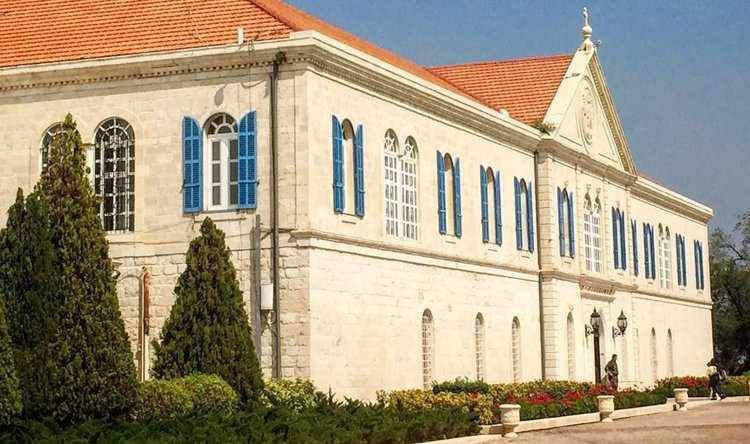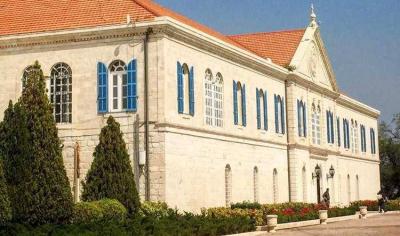Bkerke will announce its document titled "Where are the Christians in Lebanon heading?" within a week or ten days, which includes several provisions addressing current issues ranging from the war in the south and Hezbollah's weapons to the Syrian refugee file, corruption issues, and the vacancy in the presidency, as well as the current Christian reality and the fragmentation it suffers from. Intense and deep discussions were held among representatives of the Christian parties that participated, except for the Marada Movement, as reported by "Nidaa Al-Watan."
It is not clear what impact such a unifying document will have while the country and the region are undergoing severe turmoil, especially regarding the Israeli war on Gaza and the front that Hezbollah's Secretary-General Hassan Nasrallah stated is ongoing and imposes equations on the ground. Additionally, the link between the support front and Gaza is crucial and has been acknowledged by the Americans and the French, along with the issue of Syrian refugees, with reports indicating that the European Union has officially informed Lebanon to ease its stance on refugees, as the issue has regional and international dimensions, and its resolution will not be forthcoming.
In light of this reality, Bkerke continued its discussions on the document. The parties have finalized their discussions on the final version, which included significant amendments to the sections concerning weapons and the war in the south. From the outset of the discussion, the weapons section faced strong opposition from parties demanding a decisive stance on the armament issue. The debates were heated, particularly between the Lebanese Forces and the Free Patriotic Movement regarding Hezbollah's status, the decision of war and peace, and the arms that should exclusively belong to the state, arguing that its current war is dragging Lebanon into calamities that it cannot bear.
The Free Patriotic Movement successfully reframed the discussion, shifting concerns to national worries that are not limited to Christians, as the issues at hand concern all Lebanese. It also managed to soften harsh language regarding the Resistance's weapons and the demand for their removal. The movement played a critical role in producing a moderate document that is highly flexible and not provocative toward Hezbollah.
During a meeting, Bkerke did not hide from Hezbollah's delegation that the arms issue was one of the items in the document and that Bkerke's position is well-known, expressing that Hezbollah's youth are the youth of Lebanon, lamenting their loss, and stating that no individual can be at ease when seeing fellow citizens die in such numbers. Hezbollah's response was to understand this stance, but from its point of view, a cost must be paid for the sake of the homeland.
In dialogue with several journalists, Bishop Antoine Bou Najm expressed his displeasure at the leak of draft documents to the media, which, in his opinion, hindered the discussions. He preferred not to elaborate on the final version's contents, only mentioning broad titles and clarifying that, while the discussions started among Christian parties, the goal is to convert it into a national document that gains national consensus to serve as a foundation for understanding. He revealed that a message was sent to Christian parties regarding this paper via email, with all responding except for the Marada Movement, which preferred not to provide feedback, feeling initially that it was not concerned with the document or its discussions. Bkerke had previously sent a message to Movement leader Suleiman Frangieh, via his son, MP Tony Frangieh, regarding the document's content and purpose, but did not receive the expected response. The logic suggests that Suleiman Frangieh sees no need to align himself with a new approach regarding Hezbollah's weapons, for which he is a presidential candidate.
Patriarch Al-Rahi emphasized during discussions the importance of using flexible wording in the document and adjusting anything that could be a source of contention or provoke political sensitivities among different groups. The document is just the beginning, and Bou Najm confirmed that Bkerke will not despair or cease its efforts to find common grounds for the Lebanese to meet. He reaffirmed that Lebanon is a final homeland worthy of defense, preservation, and rescue. He reiterated that the church does not intervene in political matters, and its goal is to bring together citizens to save the country and encourage dialogue among them.
Regardless of what Bou Najm said about the positive atmosphere he sought to promote, the document still has phases of discussion ahead at the level of leading figures and with Patriarch Al-Rahi, who will launch it as a dialogue paper among the Lebanese. Some observers within the Christian community preferred not to overspend on optimism, as not everything said or stated reflects the actual situation, according to "Nidaa Al-Watan."




